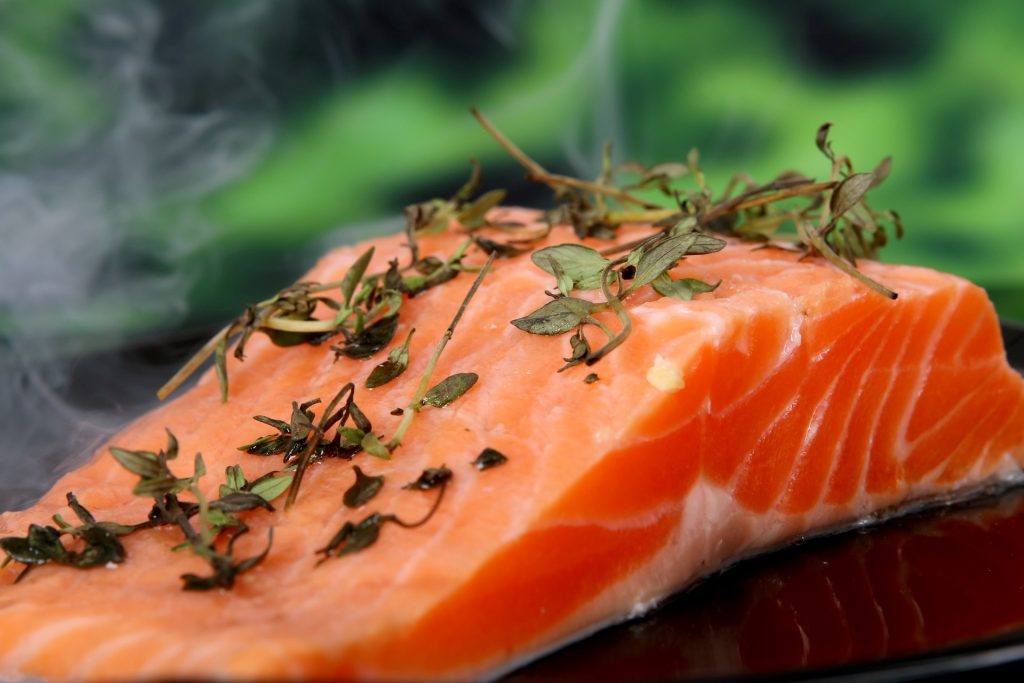Omega-3 fatty acids, such as DHA and EPA are healthy fats thought to have positive effects on pregnancy, including how long you carry your baby and promoting your baby’s brain growth. While no formal guidelines exist, it is recommended for pregnant women to consume 200-500 mg of EPA and DHA daily for optimal health. Of the two, DHA provides the most benefits, thus more focus should be on DHA-rich foods.

Tips to increase your DHA intake
Eat fish
- Fatty fish is one of the best food sources of DHA and also contains many other important nutrients such as vitamin D and B12.
- Aim for 12 ounces of oily fish per week (cooked salmon, trout, light tuna, halibut, herring, or shellfish).
- Canned salmon and light tuna are both inexpensive, healthy, and easy-to-prepare.
- Concerned about mercury? Limit intake of fish to 12 ounces per week. Avoid fish that are known to have high levels of this contaminant: swordfish, tilefish, king mackerel, and shark.
Try fortified foods
- Fortified foods are becoming more common in grocery stores.
- Read the label to find products that are fortified specifically with DHA, not just omega-3.
- Some eggs, milk, and yogurts are fortified with omega-3s.
Take a supplement
- If you are not getting enough DHA from fish and fortified foods, consider adding a fish oil supplement (stating that it is low in mercury).
- Read the label when choosing a supplement. For optimal benefits, choose a supplement product that contains at least 250 g of DHA+EPA.
Omega-3 fatty acids provide benefits to your health at all stages in your life, not only during pregnancy. These beneficial fats can also help protect against heart disease and dementia as you age. Also, your baby’s brain continues to develop after birth, so DHA is still an important part of his or her diet throughout childhood.
Top Sources of DHA & EPA (amount varies):
- Salmon
- Tuna
- Halibut
- Herring
- Sardines
- Trout
- Fortified eggs & milk


